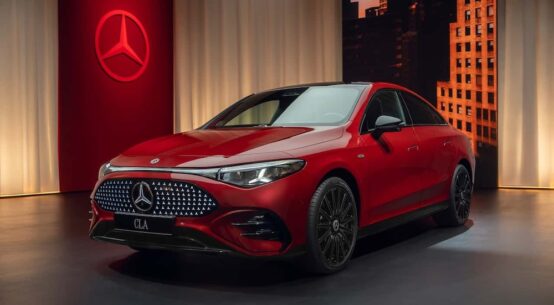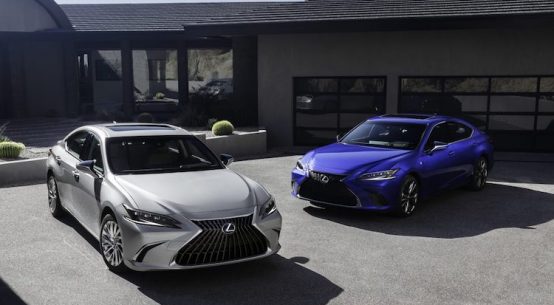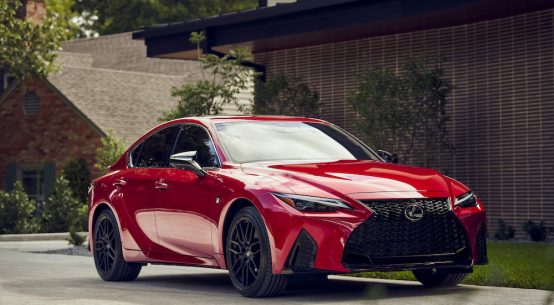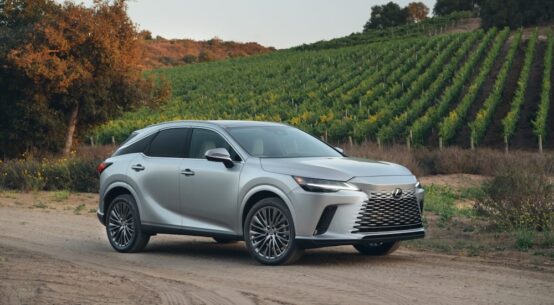
A year after it’s world debut, GR Supra is back for 2021 with more horsepower and a four-cylinder option. The 3.0 and 3.0 Premium grades will now boast 382 hp from its 3.0-liter inline six-cylinder engine, and for the first time in the U.S., Supra will come with an available turbocharged 2.0-liter four-cylinder in the 2.0 grade. Additionally, 1,000 special A91 Editions will be produced.
The 2020 Toyota GR Supra brought the revered model back in a blaze of speed, with acceleration and handling performance that outshone even its illustrious A80 predecessor. For 2021, Toyota is keeping the pedal down, boosting output of the Supra’s turbocharged 3.0-liter inline-six from 335 hp at 5,000-6,500 rpm to 382 hp at 5,800-6,500 rpm, a 14-percent increase. Torque rises from 365 lb.-ft. at 1,600-4,500 rpm to 368 lb.-ft. at 1,800-5,000 rpm.
- GR Supra 3.0 Gets Power Boost and Revised Chassis Tuning
- New GR Supra 2.0 is First-Ever Four-Cylinder Version, with 255 Horsepower and Lower Weight
- New GR Supra A91 Edition with Exclusive Color and Design Features
- 8-in. Central Display Screen Now Standard on All Models
- GR Supra 2.0 starts at $42,990, while 3.0 starts at $50,990
The increased output results from a slew of upgrades throughout the engine. The new dual-branch exhaust manifold, with six ports instead of two, improves airflow and heat management. A new piston design reduces the engine’s compression ratio from 11:1 to 10.2:1 in order to prevent abnormal combustion due to high boost.
The greatly revised engine produces higher torque at higher rpm and retains the eagerness to rev with turbine-like smoothness. Toyota projects that the new engine will reduce the Supra 3.0 model’s 0-60 acceleration time to 3.9 seconds, down from 4.1. The 8-speed automatic transmission with paddle shifters carries over for 2021. Even with the power boost, GR Supra 3.0 grades will achieve an estimated 25 mpg combined (22 city/30 highway/25 combined).
Retuned Chassis for Supra 3.0
The 2020 GR Supra won praise for its ride/handling balance, but even the exceptional can be improved. Seeking increased roll resistance and enhanced cornering stability, Toyota retuned the Supra 3.0 chassis, adding lightweight aluminum braces that tie the strut towers to the radiator support to increase lateral rigidity, along with front and rear bump stops and new damper tuning. Revised programming for the electric power steering (EPS), Adaptive Variable Suspension (AVS), Vehicle Stability Control (VSC) and Active Differential works in concert with the hardware changes to make the 2021 Supra more stable through quick transitions, such as compound turns.
The First Four-Cylinder Supra Is Quick and Light
The 2020 GR Supra broke from the model’s traditions in several areas, and the 2021 version seems to do it again with the first-ever four-cylinder turbo model. Or does it? The new Supra 2.0 becomes the entry model, returning a two-tier performance lineup that parallels the A70 and A80 Supra models.
The 2021 Supra 2.0 offers an intermediate model between the Toyota 86 and the Supra 3.0, giving the customer three distinct Toyota sports car choices.
The 2.0-liter inline four-cylinder engine shares much of its technology with the 3.0-liter inline-six, including a twin-scroll turbo, direct fuel injection and continuously variable timing on both the intake and exhaust camshafts. The variable intake valve lift system adjusts intake valve timing and duration. The bottom line is 255 hp at 5,000-6,500 rpm and a stout 295 lb.-ft. peak torque at 1,550 to 4,400 rpm.
The Supra 2.0 uses the same 8-speed automatic transmission as the 3.0, and Toyota projects 0-60 mph in 5.0 seconds, which will make it Toyota’s second quickest vehicle in the lineup. The Supra 2.0 has the same electronically limited 155-mph top track speed as the 3.0, and its fuel consumption will be lower.

The Supra Lightweight
The 2021 Supra 2.0 offers much more than a lower price point. At 3,181 pounds, it is more than 200 pounds lighter than the Supra 3.0 while maintaining that model’s exemplary near perfect weight distribution. That’s because the weight reduction is spread throughout the car:
- The Supra 2.0 uses smaller front brake rotors than the Supra 3.0 (330mm x 24mm vs. 348mm x 36mm), and with single-piston calipers vs. four-piston.
- The Supra 2.0 does not have the Active Differential and Adaptive Suspension used on the 3.0 model.
- A four-speaker audio system is standard, vs. the Supra 3.0’s 10-speaker system.
Supra 2.0 seats are manually adjustable, vs. 14-way power-adjustable in the 3.0.
Performance, Well-Priced
The 2021 GR Supra’s inline six-cylinder gets a major power boost, but with a minor price increase. The 3.0 Premium grade has an MSRP increase of just $500, with a starting price of $54,490. The 3.0 grade starts at $50,990, up just $1,000 from MY20. The A91 Edition has an MSRP starting price of $55,990, which is $740 more than the Launch Editions offered for model year 2020.
The GR Supra 2.0 grades will have an MSRP starting price of $42,990.
The Safety & Technology Package is new for MY21 and will be available on the 2.0 and 3.0 grades. It will cost $3,485 on the 2.0 and $3,155 on the 3.0 and include:
- Dynamic Radar Cruise Control (Full speed)
- Blind Spot Monitor (BSM)
- Rear Cross Traffic Alert (RCTA)
- Parking Sensors with Emergency Braking Function
- Navigation
- 12-speaker 500-watt JBL Audio System
- Wireless Apple CarPlay® compatible (iOS only)
- Supra Connected Services: up to four-year trial includes Remote Services, Remote Maintenance, Automatic Emergency Call, Real Time Traffic Information, Concierge, Stolen Vehicle Recovery, and Map Updates.
The Driver’s Assist Package will still be an available option on the 3.0 Premium and A91 Edition. That package costs $1,195 and includes:
- Dynamic Radar Cruise Control (Full speed)
- Blind Spot Monitor (BSM)
- Rear Cross Traffic Alert (RCTA)
- Parking Sensors with Emergency Braking Function
Comparing 2020 and 2021 Supra GR Models






